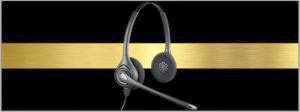Written by Mark J. Fletcher, Avaya's Chief Architect for Worldwide Public Safety Solutions. He represents Avaya on the APCO Standards Development Committee and the NENA Institute Board, and also contributes technical guidance to various committees at the FCC.
On Dec. 1, 2013, in Marshall, Texas, Kari Hunt went to the Baymont Inn to meet her estranged husband with her children. Little did she know, a single digit would stand between her and the emergency services she would so desperately need. During the visitation, Hunt was brutally murdered in front of the children. Her nine-year-old daughter attempted to call 9-1-1 on the motel room phone, but wasn't able to get through because she didn't know to dial 9 first.
At an early age, our parents, teachers, police and firefighters teach us that if you need help, you call 9-1-1. Unfortunately, access to 9-1-1 from multi-line telephone systems (MLTS), also known as private branch exchanges (PBX) can be problematic. Often, the caller is required to dial 9 and/or another numeral before placing any outside call, including emergency calls to 9-1-1.
In response, several major hotel chains have implemented policies requiring direct dialing to 9-1-1 as part of their brand standards. Additionally, 18 states have legislation on the books regarding MLTS/PBX systems; two of those states have penalties for non-compliance.In January 2014, an updated MLTS/PBX plan was drafted and presented to FCC Commissioner Ajit Pai. It focused on simple steps that could be put in place at little to no cost to enhance the public's access to 9-1-1. These requirements are:
- Access to 9-1-1 with and without an access code: Telephones must have the ability to reach 9-1-1 by dialing only the digits 9-1-1.
- On-site notification of 9-1-1 calls: This is critical so staff can respond appropriately or direct emergency services upon arrival.
- Prohibiting the interception of 9-1-1 calls: Answering calls internally blocks the person who needs assistance from responders.
At the "9-1-1 Goes to Washington" event held in February 2014, Commissioner Pai reported on results of an inquiry to the top hotel operators. The inquiry showed that less than half (44.5%) of corporate-owned properties allowed direct access to 9-1-1, and for franchised properties the compliance level was a mere 32%. Commissioner Pai said these numbers are unacceptable.
"The data we've gathered suggests that the MLTS at tens of thousands of buildings across the U.S. may fail consumers during the most important moments of their lives," he said. "As in Kari's case, systems at these properties will not perform one of the most important purposes of the nation's communications network -- connecting 9-1-1 callers to help."
Legislator Robert Trotta of Suffolk County, N.Y., was shocked to hear of the deficiency found in many MLTS properties. Trotta brought Kari's Law to action in New York, where Suffolk County takes up about two-thirds of Long Island's 1,400 square miles and is a popular destination for many families. Trotta was concerned not only for the lodging industry, but for businesses, which spurred his trip to Washington, D.C. A test call to 9-1-1 he placed from his Suffolk County office failed to reach 9-1-1 services. Why? Because the cloud-based MLTS services in his office didn't allow direct 9-1-1 access. Trotta's legislation was passed unanimously in just a matter of months, with current plans to bring the issue to Albany for action at the state level.
Illinois had MLTS legislation stemming back to the late 1990s in response to a tragic fire that took the life of a young businesswoman. But, like many other states, there was no language on direct access, local notification or prohibiting companies to answer their own calls with untrained personnel. After being inspired by the success in Suffolk County, Illinois Senator Jennifer Bertino-Tarrant took the lean and presented a similar bill to the full Illinois Senate floor, where unanimous and bi-partisan support was immediately received. The bill was passed as an amendment to the existing bill, adding the three main components of Kari's Law as well as provisions for non-compliance penalties.
In Texas, the Commission on State Emergency Communications (CSEC) held a public hearing on the issue and decided to fast-track the legislative process by using language already written, as endorsed by the majority of agencies and interested parties in attendance.
The Colorado 9-1-1 Resource Center, a nonprofit organization providing support for Colorado 9-1-1 authorities and PSAPs, has also recommended that the Colorado Public Utilities Commission review their current legislation.
In response to the tragedy of Kari Hunt's murder, the emergency communications industry took action to correct the problem. In the end, public education by MLTS manufacturers as well as the public safety community continues to raise awareness and ultimately saves lives.

No comments:
Post a Comment